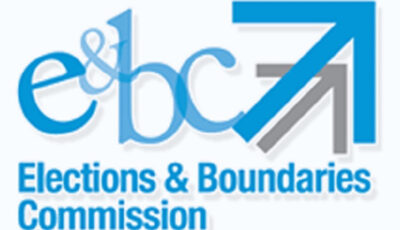HEADLINES
Commentary
Rowley strenuously objected to the construction of Penal-Debe UWI Campus
The media is reporting that the UWI Penal-Debe Campus, built during the People’s Partnership Administration continues to sit empty and has never
Posted On 30 Oct 2023
Blighted WGTL Project continues to haunt PNM
That World Gas-to-Liquids project is another of the many PNM scandals and failed projects which has cost taxpayers billions of dollars! And it is
Posted On 22 Jun 2023
Who financing Balisier House?
Ferdinand Ferreira, a founding member of the People’s National Movement (PNM), is quoted in the media as saying that the party has always
Posted On 03 Apr 2023
UNC SENATORS DEFENDED THE PARTY WELL TODAY
Today, the Opposition UNC Senators defended themselves and the Party well from the frivolous, anti-democratic motion by Senator Anthony Viera.
Posted On 22 Feb 2022
COVID WORKERS FIGHTING A WAR WITHOUT THEIR PROPER WEAPONS
We congratulate Kamla Persad-Bissessar on her success in forcing the Government to conduct an inquiry into the handling of covid. We take this
Posted On 20 Feb 2022
Letters
For fools rush in where angels fear to tread
The National Security Minister’s recent unrestrained language and conduct towards judges and unjustified criticisms of their judicial functions
Posted On 14 May 2023
Seek a fresh mandate
I recently read in one of the daily newspapers that Minister of National Security Fitzgerald Hinds said that 70% of society wants to see him
Posted On 27 Dec 2022
Don’t Blame God for Rowley’s Dotishness
Prime Minister Keith Rowley at the PNM convention on December 4, 2022, announces a National Day of Prayer. He said the country must come together
Posted On 16 Dec 2022
Keith Rowley has betrayed the sanctity of Parliament
Dear Editor, The revelation by the Commissioner of Police that the emails which Keith Rowley, then Opposition Leader read in our nations
Posted On 19 Jul 2019
T&T owes Kamla a debt of gratitude
Kamla Persad-Bissessar did what many were not expecting… she and her MPs voted unanimously with the Government to ensure passage of the Civil
Posted On 09 Apr 2019
Press Releases
Tancoo: Flooding imminent as Government fails to act
After a couple days of scattered “April showers” earlier this week, MP for Oropouche West, Dave Tancoo is again warning that severe flooding in
Posted On 06 Apr 2024
MP Khadijah Ameen wants justice for Kiss Driver’s death
Member of Parliament for St. Augustine, Ms. Khadijah Ameen is calling for justice for the death of Kiss delivery driver, Neil Ballai. Ballai was
Posted On 06 Apr 2024
UNC’s Persistent Pressure Forces Rowley Gov’t to Release 2024 EBC Report
On the heels of intense, consistent pressure from the UNC over their highly questionable refusal to lay the 2024 EBC Boundaries Report in
Posted On 06 Apr 2024
Moonilal: Hinds Fails Fire Service, Lives at Risk as Equipment Crumbles
The collapse of the Trinidad and Tobago Fire Services is another crushing indictment on the spectacularly failed Fitzgerald Hinds as Minister of
Posted On 05 Apr 2024
Padarath: Gov’t Electricity Rate Hike “Unbearable Burden”
Princes Town MP, Barry Padarath said that the contents of a report in yesterday’s Business Guardian headlined “RIC Recommends
Posted On 05 Apr 2024
Speeches
Tancoo: calls on Imbert to have a heart and indemnify the population
Today we come to you to shine some light on a very worrying development that has happened in the past few days. I am sure many of you saw or
Posted On 08 Sep 2021
Rowley’s Mad Power Grab in Tobago
My friends, we are seeing a government that is in freefall – in every single sector. Health, National Security, the business sector. And what
Posted On 16 Feb 2021
Presentation of UNC general election candidates 2020
T&T family! UNC family! It is my absolute pleasure to speak with you today, as we get ready for the sweeping victory that is to come on
Posted On 19 Jul 2020
Kamla: My vision is to build an intelligent nation
“ON THE BALLOT” UNC VIRTUAL MEETING (June 25, 2020) Introduction Good evening and thank you for joining us once again as we continue to set the
Posted On 26 Jun 2020
MNF – Kamla: There is hope
Introduction Good evening T&T! Good evening UNC family! It is good to be back! 2020 we are ready to rumble! Are you ready? Even though it’s
Posted On 11 Mar 2020
Copyright © - 2023 United National Congress







Imbert misleading the country on Petrotrin
Kevin Ramnarine.
By Kevin Ramnarine
The March 6th 2017 statement by the Minister of Finance regarding the accounts of Petrotrin is misleading. It also suggests that the Minister has now arrogated onto himself the role of the external auditor of Petrotrin.
The facts are as follows:
1. Petrotrin’s external auditor is KPMG who audits the company to international standards. KPMG signs off annually on Petrotrin’s audited accounts and these audited accounts are laid in Parliament and made public. It is therefore wrong to suggest that something was being hidden or not reported. All financial transactions were reported in the company’s audited accounts. Nothing was hidden.
2. In previous years (and prior to 2010), the auditors in accordance with generally accepted accounting practice approved the carry forward of losses stemming from large investments in the refinery upgrades such as the Gasoline Optimization Programme, the World GTL and the Ultra-Low Sulphur Diesel projects. These projects had severe cost overruns and delays which contributed to refinery losses.
3. It should be noted too that Petrotrin had been expending interest related to large capital investments made before 2010 namely the hugely overspent Gasoline Optimization Programme and the failed World GTL project. The expending of this interest which was hitherto capitalized increased cash outflows and was a major contributor to the losses.
4. These losses were carried as a “deferred tax asset” on the Balance Sheet and were to be used at a future date to offset taxable income. This is an accepted accounting practice and it considers that the company is a “going concern”. In the audited accounts for the year 2015, the “Deferred Tax Asset” was reported in the Balance Sheet as being about TT$ 4.5 billion.
5. A “deferred tax asset” is recorded on the balance sheet if it is expected that the company would in the near future make a profit and have taxable income against which the deferred tax asset could be applied. That is to say, the deferred tax asset can be used. It is clear therefore that in 2015, the auditors believed that Petrotrin would return to profitability and therefore have taxable income to which the deferred tax asset could be applied.
6. In 2016, it is clear that having regard to low prices, the curtailment of necessary operating activity (such as – drilling) and at the same time an increased operating cost, there may be the view that the company will not return to profitability and hence the “deferred tax asset” would be of no use and therefore it was impaired and appears in the “profit and loss statement” as a significant write down. This is an indictment on the Government.
7. In his statement, the Minister of Finance who is corporation sole has made a serious accusation against a State Enterprise (Petrotrin) which will damage its reputation in the eyes of international bondholders. He has also assailed the integrity and independence of the auditor which is one of the world’s “big four” accounting firms.
8. This sends the wrong signal at the wrong time. It comes at a time when the country is under the microscope of the credit ratings agencies. A downgrade of the country and Petrotrin will impact the ratings of the NGC and FCB. This comes at a time when the FCB is preparing for a second share offering.
Given the seriousness of the matter, the Minister ought to have been more responsible in his statements. He has demonstrated that he is either unaware of the true facts or is making mischief out of what is a perfectly straightforward matter. Or it could be that he has some ulterior motive.
Share this:
Like this:
Slipping into the abyss
Correcting Colm
Commentary
Rowley strenuously objected to the construction of Penal-Debe UWI Campus
Blighted WGTL Project continues to haunt PNM
Who financing Balisier House?
UNC SENATORS DEFENDED THE PARTY WELL TODAY
COVID WORKERS FIGHTING A WAR WITHOUT THEIR PROPER WEAPONS